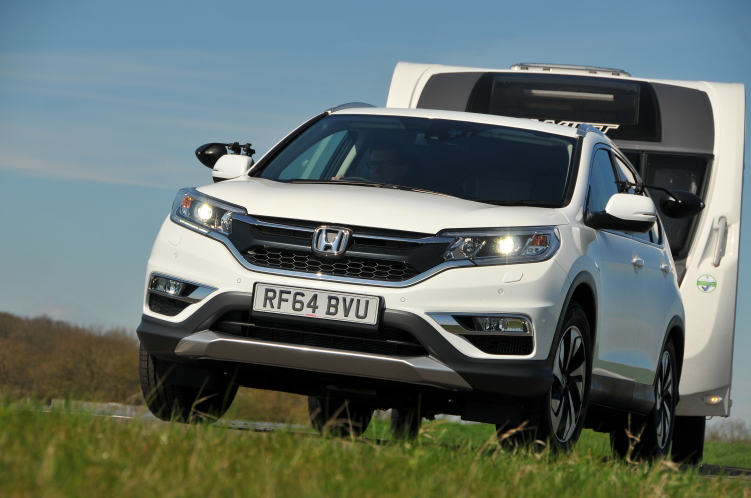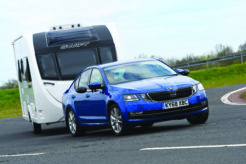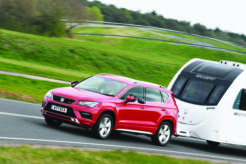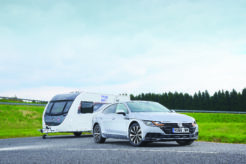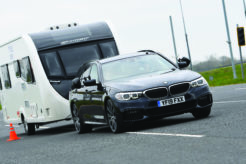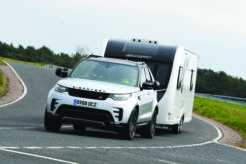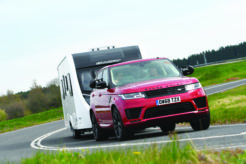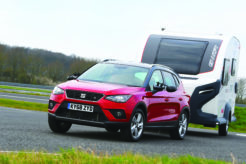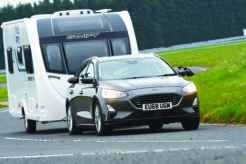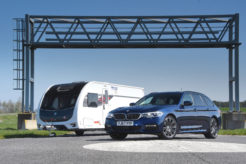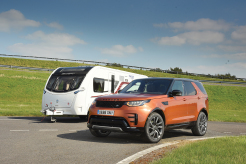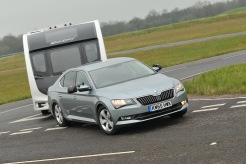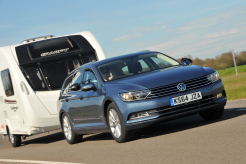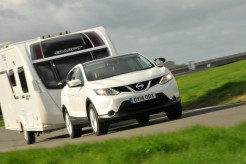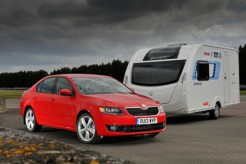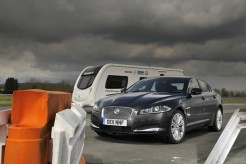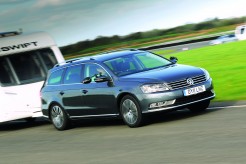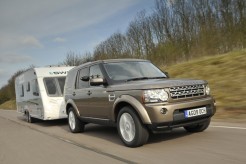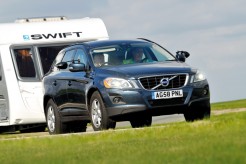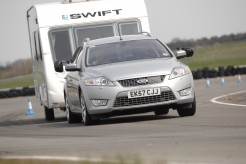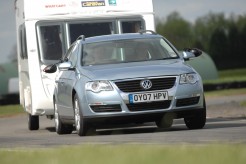Changes to the Honda CR-V have made this one of the most fuel-efficient mid-sized SUVs on sale. The 1.6-litre engine emits just 133g/km of carbon dioxide and achieves 55.4mpg on the combined cycle.
Despite the engine’s lack of thirst, it still has a healthy 258lb ft of torque. That’s enough to pull car and caravan from 30-60mph in 15.9 seconds. That’s a respectable pace, but there are plenty of quicker cars in this weight category.
Stability also falls under the heading of ‘good but not great’. At a steady 60mph in still air, the CR-V is quite happy, but when the wind picked up or we drove a little faster, the caravan began to move around. We’re not talking about anything alarming, but we didn’t have the same confidence in the Honda as in the best 4x4s.
The lane-change test was the CR-V’s weakest point. The caravan was pushing at the back of the car on the second of three runs, and on the third and fastest run the caravan took over and pulled the car sideways.
The Honda CR-V’s strengths lie elsewhere. The cabin is very roomy, with lots of space whether you are travelling in the front or the back. Our practicality testers had no trouble fitting every item of holiday luggage in the car, and the levers either side of the boot make it easy to fold the rear seats down and extend the space further.
Although it’s not cheap to buy compared with its mainstream rivals, Honda has a deserved reputation for reliability and the CR-V should hold its value well.





